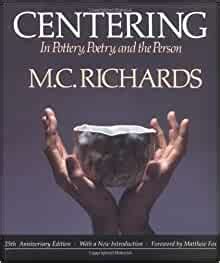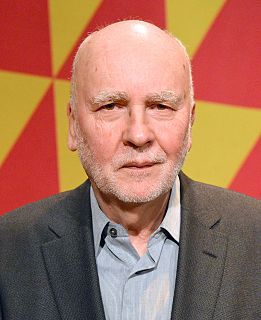A Quote by Derek Walcott
You can't read to yourself. It's your inner ear that hears a poem. If you hear a poet read his own work, it becomes very exciting. The melody is a great part of it.
Related Quotes
My first advice would be to read, read, read, which sounds interesting coming in a digital age, but it's so much easier to listen to a poem than it is to sit down and actually read it and to hear it in your head and that is something that every poet or aspiring poet needs to be able to do, I think to hear it in their head.
The true poem is not that which the public read. There is always a poem not printed on paper,... in the poet's life. It is what hehas become through his work. Not how is the idea expressed in stone, or on canvas or paper, is the question, but how far it has obtained form and expression in the life of the artist. His true work will not stand in any prince's gallery.
You should never read just for "enjoyment." Read to make yourself smarter! Less judgmental. More apt to understand your friends' insane behavior, or better yet, your own. Pick "hard books." Ones you have to concentrate on while reading. And for god's sake, don't let me ever hear you say, "I can't read fiction. I only have time for the truth." Fiction is the truth, fool! Ever hear of "literature"? That means fiction, too, stupid.
It is not the number of books you read; nor the variety of sermons which you hear; nor the amount of religious conversation in which you mix: but it is the frequency and the earnestness with which you meditate on these things, till the truth which may be in them becomes your own, and part of your own being, that ensures your spiritual growth.
And with listening, too, it seems to me, it is not the ear that hears, it is not the physical organ that performs the act of inner receptivity. It is the total person who hears. Sometimes the skin seems to be the best listener, as it prickles and thrills, say to a sound or a silence; or the fantasy, the imagination: how it bursts into inner pictures as it listens and then responds by pressing its language, its forms, into the listening clay. To be open to what we hear, to be open in what we say. .
You go out into the world, you read everything you can read, you imitate the things you love, and you learn how hard it is to do. Eventually, you learn your own vision of the world, you learn your own voice and how to hear it, and you learn to write your own work. Writers today have as many opportunities as my generation did, but they don't see the examples as clearly as we did.
You can publish a poem you think is a very important poem, and you don't hear a word from anyone. [...] You can publish a book of poetry by dropping it off a cliff and waiting to hear an echo. Quite often, you'll never hear a thing. So doing that, using older work, puts it in a context, and that sort of forces the reader to realize what its importance is-if it has any. Everything needs a context. You're not going to recognize a poet unless you have a context.
Read for yourselves, read for the sake of your inspiration, for the sweet turmoil in your lovely head. But also read against yourselves, read for questioning and impotence, for despair and erudition... and also read those whose darkness or malice or madness or greatness you can't understand because only in this way will you grow, outlive yourself, and become what you are.







































